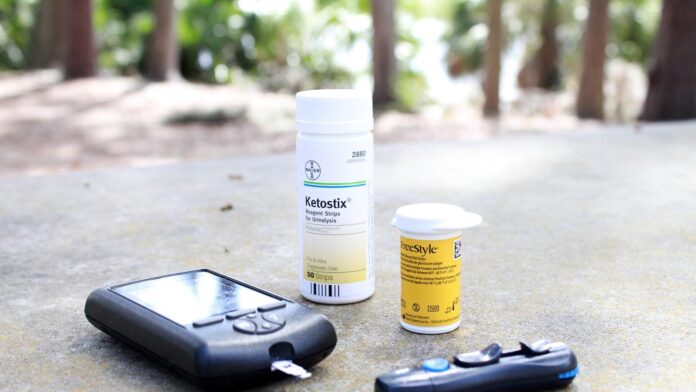
Diabetes is a chronic condition that affects millions of people worldwide. It is characterized by high levels of blood sugar, which can lead to serious health complications if not managed properly. One of the key components of managing diabetes is following a balanced and healthy diet.
The diabetic diet is a meal plan that is tailored to meet the nutritional needs of individuals with diabetes. It focuses on controlling blood sugar levels through proper food choices and portion control. By following a diabetic diet, individuals with diabetes can better manage their condition and reduce the risk of complications.
What to Eat on a Diabetic Diet
When following a diabetic diet, it is important to focus on eating a variety of nutrient-dense foods that can help regulate blood sugar levels. Here are some foods that are recommended for individuals with diabetes:
1. Lean proteins: Include sources of lean protein such as chicken, fish, tofu, and legumes in your diet. Protein helps stabilize blood sugar levels and keeps you feeling full for longer.
2. High-fiber foods: Foods that are high in fiber, such as fruits, vegetables, whole grains, and legumes, can help control blood sugar levels and improve digestion. Aim to include a variety of high-fiber foods in each meal.
3. Healthy fats: Include sources of healthy fats such as avocados, nuts, seeds, and olive oil in your diet. Healthy fats help reduce inflammation and improve heart health.
4. Low-glycemic index foods: Choose foods with a low glycemic index, as they have less of an impact on blood sugar levels. Examples of low-glycemic foods include non-starchy vegetables, whole grains, and legumes.
5. Portion control: Pay attention to portion sizes and aim to eat balanced meals that include a mix of protein, carbohydrates, and fats. This can help prevent blood sugar spikes and keep you feeling satisfied.
What to Avoid on a Diabetic Diet
In addition to knowing what to eat, it is also important to be aware of foods that can negatively impact blood sugar levels. Here are some foods to avoid on a diabetic diet:
1. Sugary beverages: Avoid drinks that are high in sugar, such as soda, fruit juice, and energy drinks. These beverages can cause blood sugar levels to spike quickly.
2. Processed foods: Limit your intake of processed foods, as they often contain added sugars, unhealthy fats, and artificial ingredients. Opt for whole, unprocessed foods whenever possible.
3. Refined grains: Choose whole grains over refined grains, as they are higher in fiber and nutrients. Avoid white bread, white rice, and other refined grains that can cause blood sugar spikes.
4. Saturated and trans fats: Limit your intake of saturated fats and trans fats, as they can increase cholesterol levels and raise the risk of heart disease. Choose healthier fats such as olive oil, nuts, and avocados instead.
5. High-sodium foods: Reduce your intake of high-sodium foods, as they can increase blood pressure and put you at risk for heart disease. Opt for low-sodium options whenever possible.
Tips for Following a Diabetic Diet
In addition to knowing what to eat and what to avoid, there are some key tips to keep in mind when following a diabetic diet:
1. Monitor your blood sugar levels regularly: Keep track of your blood sugar levels throughout the day to ensure they are within a healthy range. Consult with your healthcare provider to determine your target blood sugar levels.
2. Stay hydrated: Drink plenty of water throughout the day to stay hydrated and help regulate blood sugar levels. Aim to drink at least eight 8-ounce glasses of water per day.
3. Plan your meals ahead of time: Take the time to plan out your meals and snacks in advance to ensure you are making healthy choices. This can help prevent impulse decisions and keep you on track with your diabetic diet.
4. Be mindful of portion sizes: Pay attention to portion sizes and avoid overeating. Use measuring cups, food scales, and other tools to help you portion out your meals correctly.
5. Seek support: Join a diabetes support group or work with a registered dietitian to help you create a personalized meal plan and stay motivated to follow a diabetic diet.
In conclusion, the diabetic diet is a critical component of managing diabetes and promoting overall health. By following a balanced meal plan that focuses on nutrient-dense foods, portion control, and healthy choices, individuals with diabetes can better control their blood sugar levels and reduce the risk of complications. Remember to consult with your healthcare provider before making any significant changes to your diet, and seek support from a registered dietitian or diabetes educator to help you create a meal plan that works for you. Stay mindful of what you eat, be aware of your portion sizes, and make healthy choices to support your overall well-being.

















